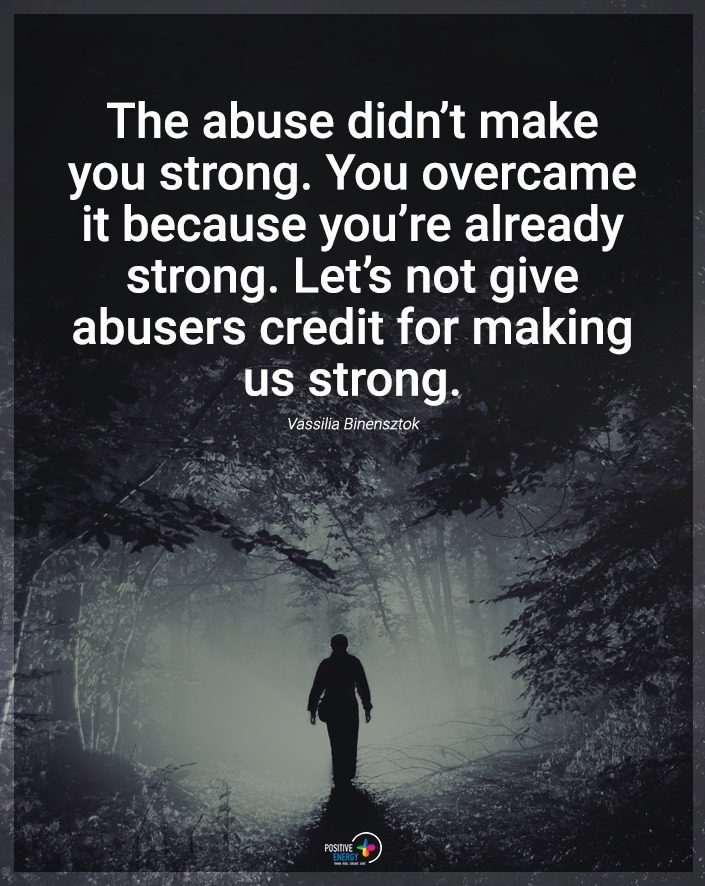Here’s what children learn from the words they hear.
Understanding the impact of verbal abuse on child development is crucial for parents. It’s also a critical message to send to educators and society. Verbal abuse, a form of negative communication, can have far-reaching effects on a child’s growth.
The insidious nature of verbal abuse often makes it less visible than other forms of harm. Yet, its effects are no less damaging. Words can shape reality for young minds, and when those words are cruel or demeaning, they can warp a child’s perception of themselves and the world. It’s not just about the immediate hurt feelings. Instead, it’s about the long-term implications on a child’s ability to navigate life effectively.
As we dig deeper into the various aspects of development affected by verbal abuse, it becomes clear that the words we use in the presence of children carry immense power, with the potential to either nurture or stunt their growth.
Fifteen Ways Verbal Abuse Can Harm Child Development
Here are fifteen ways in which verbal abuse can hinder a child’s developmental journey.

1 – The Shadow of Self-Esteem
When children receive verbal abuse, the delicate structure of their self-esteem is often the first casualty. The constant barrage of negative words can erode their self-worth. As a result, it can lead them to internalize the harmful messages as truths about their identity. That can manifest in a reluctance to try new things, a fear of failure, or a pervasive sense of being less than others.
As these children grow, the shadow cast by damaged self-esteem can extend into every corner of their lives, affecting their ability to form healthy relationships and confidently pursue opportunities. The journey to rebuild self-esteem is a challenging one, requiring consistent support and positive affirmation to counteract the effects of verbal abuse.
2 – Verbal Abuse Often Harms the Development of Communication Skills
Communication is a complex skill, one that children learn by example. Children may find themselves in a maze of miscommunication when the example set is verbal abuse. They may become withdrawn, choosing silence over the risk of being subjected to further abuse.
Alternatively, they may adopt the abusive language they hear, perpetuating a cycle of negativity and harming their ability to form positive connections with others.
This impact can be long-lasting, affecting personal relationships and educational and professional opportunities where effective communication is critical.
2 – The Fog of Emotional Intelligence
Emotional intelligence is like a compass for navigating social interactions and personal feelings. Verbal abuse can shroud this compass in a fog, making it difficult for children to discern how to express their emotions healthily or understand the feelings of those around them.
This impairment can lead to many challenges, from misreading social cues to struggling with self-regulation. As these children mature, the fog of compromised emotional intelligence can result in difficulties in forming meaningful relationships and achieving professional success, as both spheres rely heavily on emotional understanding and communication.
3 – Verbal Abuse Can Be a Barrier to Academic Achievement
The classroom should be a sanctuary of learning and curiosity, but for children experiencing verbal abuse, it can become yet another battleground. The stress and anxiety brought on by abuse can fracture their focus, disrupt their concentration, and sap their motivation.
This mental turmoil can translate into poor academic performance, lower grades, and a diminished interest in school. The barrier to academic achievement erected by verbal abuse not only hampers their education but can also close doors to future educational and career prospects.
4 – Decreased Confidence in Social Interactions
Social interactions are the threads that weave the fabric of community and belonging. For children who endure verbal abuse, these threads can become tangled. They may retreat into isolation, wary of forming connections for fear of further harm.
Or they may struggle with trust, viewing relationships through skepticism and fear. This tangle can leave them on the fringes of social circles, impeding the development of the networks crucial for personal fulfillment and professional advancement.
5 – The Weight of Mental Health Issues
The psychological toll of verbal abuse is heavy, and its weight can press down on every aspect of a child’s life. The constant stress and negativity can prime the mind for mental health issues such as depression, anxiety, and post-traumatic stress disorder (PTSD).
These conditions are not just fleeting states of mind; they are serious health concerns that can stifle a child’s ability to function, find joy, and move forward. The weight of these issues can force children into a battle with their minds that requires resources, support, and understanding to overcome.
6 – Verbal Abuse Often Leads to an Erosion of Trust
Trust is the cornerstone of all relationships, acting as the foundation upon which children learn to build connections with the world around them. When a child hears verbal abuse, particularly from a caregiver or family member, it’s not just the relationship that suffers but the very concept of trust itself. This erosion of trust can cast a long shadow over a child’s life, leading to a pervasive sense of insecurity and fear.
As young children grow, their skepticism may make it difficult to form bonds. This viewpoint erodes friendships or romantic relationships, as they may constantly doubt the intentions of others. Rebuilding this trust is a monumental task, requiring time, therapy, and positive experiences to fix the damage.
7 – The Disruption of Physical Health
It’s well-documented that the mind and body are intricately linked, and the psychological pain of verbal abuse can manifest as physical distress. Children living in such toxic environments may frequently complain of headaches, stomachaches, and other stress-induced conditions.
These symptoms are the body’s cry to help a physical response to the emotional turmoil.
Over time, the chronic stress response can lead to more severe health issues. As an adult, they may develop heart disease, high blood pressure, and a weakened immune system. These may eventually lead to a lifetime of health challenges that extend far beyond childhood.
8 – Verbal Abuse Can Cause Stifled Potential
Every child is a reservoir of untapped potential, filled with unique talents and abilities. Verbal abuse acts as a dam, holding back the natural flow of a child’s potential and creativity. When children are constantly criticized and told they are not good enough, they begin to believe it, and the fear of failure can become paralyzing.
An environment marred by verbal abuse is like soil poisoned by toxins; nothing healthy can grow from it. It takes a nurturing, supportive environment to encourage a child to become comfortable in their comfort zones. It also helps them to discover what they can achieve in adulthood.

9 – The Confusion of Moral Development
As children navigate their formative years, they look to the adults to model morality and ethics. Verbal abuse throws a wrench into the gears of this critical development phase. Thus, it can muddy a child’s understanding of right and wrong.
When the people who are supposed to teach kindness and respect are the same ones spewing hurtful words, children receive mixed signals about acceptable behavior.
This confusion can lead to internal conflict and a skewed moral compass, potentially influencing a child’s decision-making and interactions with others as they grow into adulthood.
10 – The Interruption of Coping Mechanisms
Learning to cope with adversity is an essential life skill that children should develop as they grow. However, when a child must deal with the constant adversity of verbal abuse, it can disrupt the ability to develop healthy coping mechanisms.
Instead of learning to process and overcome challenges, they may become stuck in negative patterns of thought and behavior. These can include avoidance, denial, or aggression.
These maladaptive coping strategies can hinder their ability to deal with stress and setbacks constructively, leaving them vulnerable to a range of difficulties in both their personal and professional lives as they mature.
11 – Verbal Abuse May Hurt Identity Formation
Adolescence is a pivotal chapter in the story of self, when individuals begin to ask, “Who am I?” and “Where do I fit in?”
Verbal abuse mires this critical period of identity formation in confusion and self-doubt. Adolescents who hear continuous negative messages about their worth may begin seeing themselves through a distorted lens, questioning their value and place in the world. This dilemma can lead to a fragile sense of self that wavers under the slightest pressure, making the already challenging journey of finding one’s identity even more tumultuous.
The path to a solid and secure sense of self is the bedrock of positive reinforcement and respect—elements often missing in the lives of those who have suffered verbal abuse.
12 – Verbal Abuse an Obstacle to Independence
The road to independence is a natural progression in the maturation process. In fact, it is how children learn to think and act for themselves. Verbal abuse, however, can place formidable obstacles on this path.
Instead of nurturing a child’s autonomy, verbal abuse plants seeds of fear and self-doubt, which can sprout into an overreliance on others and a reluctance to trust their judgment. This dependence undermines the development of the critical life skills necessary for independence, such as decision-making, problem-solving, and managing one’s affairs.
The journey to independence requires a supportive environment that encourages exploration and self-efficacy, not stifling growth through criticism and control.
13 – The Undermining of Future Parenting
Parenting styles may pass through generations, with children absorbing the patterns and practices of their caregivers. Those who have experienced verbal abuse may find themselves at a crossroads when it comes to parenting their children.
The risk of perpetuating the cycle of verbal abuse is accurate, as these individuals may default to the behaviors and language modeled to them despite their best intentions. Breaking this cycle requires conscious effort, self-awareness, and often professional guidance to learn new, healthy ways of nurturing and guiding their children.
14 – Verbal Abuse Has a Ripple Effect on Society
The impact of verbal abuse on child development does not stop at the individual—it ripples out into society at large. Individuals who receive verbal abuse as kids may struggle to find their footing in the community, often facing challenges in forming stable relationships, maintaining employment, and contributing positively to society.
That can lead to a more significant societal burden through increased healthcare needs, social services, and legal issues. Moreover, the loss of potential contributions from these individuals represents a significant loss to society.
15 – The Erosion of Cognitive Functioning in a Child
Verbal abuse can also take a toll on cognitive development and functioning. Constant negative feedback and stressful interactions can hinder a child’s brain development, affecting areas responsible for memory, attention, and decision-making. Children in abusive environments may exhibit difficulties in learning, problem-solving, and critical thinking. Each of these skills are essential for academic and later professional success.
The stress of verbal abuse can create a persistent state of mental fog, where concentration and cognitive clarity are compromised, making it harder for children to process information and apply themselves in tasks that require mental agility. This erosion of cognitive functioning can have long-lasting effects, potentially limiting a child’s ability to achieve their full intellectual potential.
Final Thoughts on the Impact of Verbal Abuse on Child Development
Verbal abuse of a child is not just a series of harsh words. Instead, it is a destructive force that can greatly slow child development. Everyone needs to recognize the signs of verbal abuse. Furthermore, we must take steps to support children in developing in a healthy, nurturing environment. By doing so, we can help build a future where all children have the opportunity to reach their full potential.



















